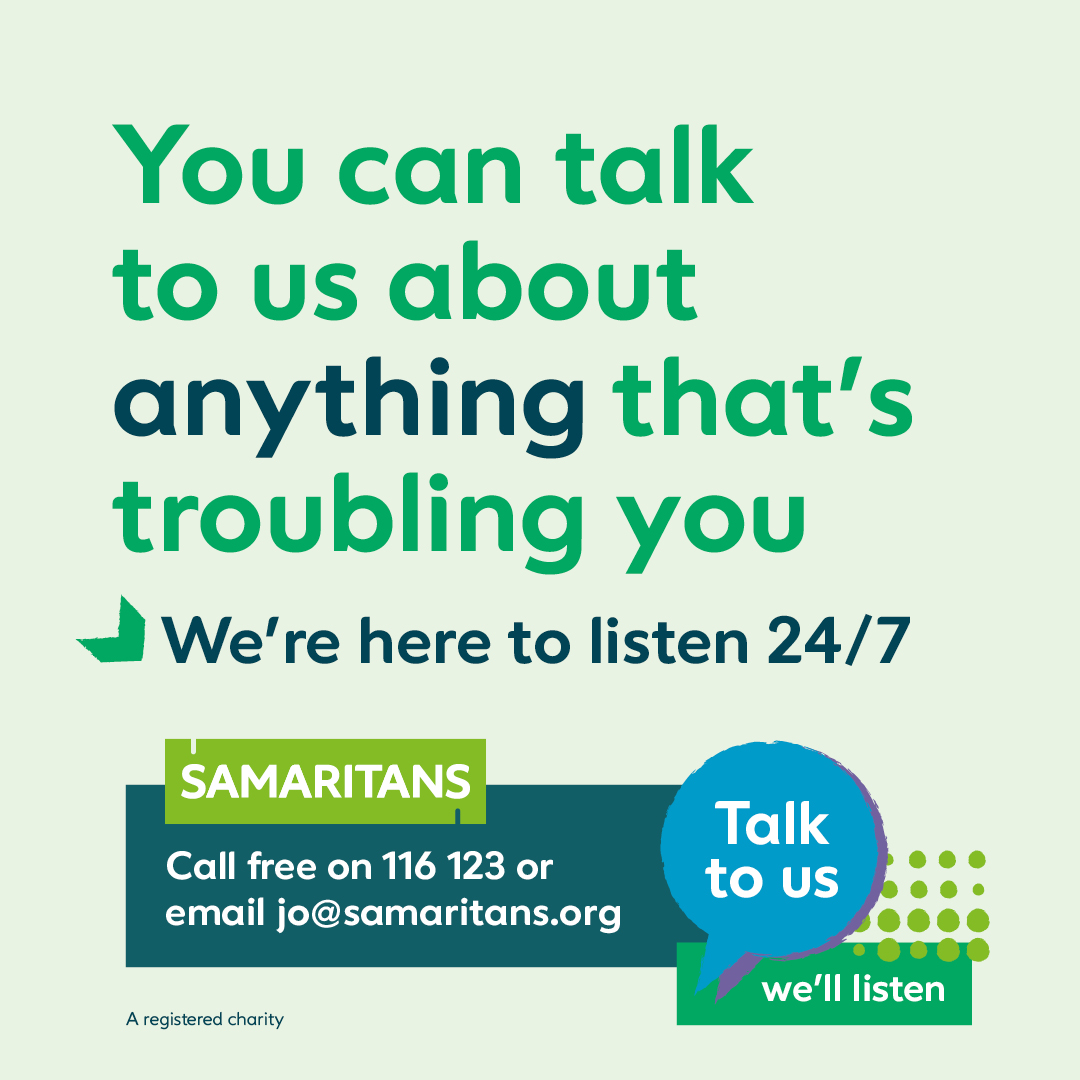Supporting Student Mental Health On Samaritans Awareness Day
What is Samaritans Awareness Day?
The Samaritans’ ‘Talk to Us‘ campaign is running throughout July, promoting their 24/7 free support line. This Awareness Day officially takes place on Sunday 24th of July to emphasize the fact that support is provided 24/7 all year round. Take note: this is certainly not a one-day event! People in need of support can turn to the Samaritans at any time of the year.
It is often necessary to turn to others for support when we work in education as we are often faced with high-stress scenarios. During exam season, students too must cope with pressure, and the end of the year can be particularly challenging. This post explores how education staff can support their students’ wellbeing whilst at the same time looking after their own mental health.

Looking After Your Own Wellbeing for Mentors, Tutors & Teachers
As you start to look towards the conclusion of another academic year, it’s an important time to check in with your own mental health and wellbeing. Colleagues will enquire, “looking forward to the holidays?” a million times in the staff rooms and school corridors up and down the country; Friends and loved ones will exclaim, “Six weeks off!? I’m so jealous… Teaching sounds great!”
As July approaches, some teachers find themselves feeling strangely devoid of happiness. Some are completely exhausted by the summer that they struggle to contemplate planning anything fun. Others report feeling empty at the end of the year.
Therefore, it is a really important time to check in with yourself and to ensure you are reaching out for support where necessary. Several of our previous posts contain advice and resources for looking after your own wellbeing. It is our hope that revisiting these will be helpful to you:
- Supporting Teacher Mental Health on World Mental Health Day
- How to Reduce Workload
- The Impact of the Lockdown on Teachers, Schools and Students
- 9 Ideas to Boost Teacher Wellbeing
Resources for Supporting Student Mental Health
Even though the summer holidays are just around the corner, throughout July young people are put under a lot of pressure: Exam stress. Anxiety over looming September changes. Social struggles. Trouble at home. There are a multitude of factors that can make life difficult for students.
For this reason, education professionals have a duty of care to be aware of signs that their students may be struggling with their mental health.
Teachers working within mainstream and specialist settings will maintain close working relationships with their students. Behavioural changes and other worrying signs should be flagged as safeguarding concerns and shared with other staff members. It can be helpful to check in with another teacher who also knows the child before offering support.
Supporting Students at University
Tutors or mentors working as part of Student Support Services at university level may not have such a close working relationship with a student’s network of support. University students have a much more independent lifestyle and are likely to be living away from their family for the first time. If you are a tutor or mentor for a university student who also has ASD or dyslexia they are at a higher risk of suffering from anxiety or depression. We have heard from our student support mentors that weekly meetings can sometimes feel quite minimal when a young person is under a great deal of pressure. Therefore, initatives like the Samaritans ‘Talk to Us’ campaign are so helpful as an extra line of support.

Listed below are more great places to find resources for supporting student mental health:
- Stride has a range of lesson plans and activities on topics such as:
- Managing Friendships & Relationships
- Managing Change
- Being Left Out
- Social Media and Positive Mental Health
- Managing Peer Pressure
- Beneden Health has a lovely guide to spotting the signs and having supportive conversations with young adults.
- NSPCC offer guidance on recognising the signs that a child may be struggling with their mental health.
- YoungMinds offer fantastic resources and training for people that work with young people.
If you or someone you know is going through a crisis there are organisations that can help:
Childline: Free for children and young people in the UK, 24 hours a day
Call 0800 1111
Alternatively, you can set up an account to Chat online or Send an email
Shout: Free for anyone in the UK, 24 hours a day
Text CONNECT to 85258
Thank you for reading our post on supporting student wellbeing in the build-up to Samaritans Awareness Day. If you would like to find out more about working with Prospero Student Support Services get in touch with the team.
Teaching Blog
No results found.....